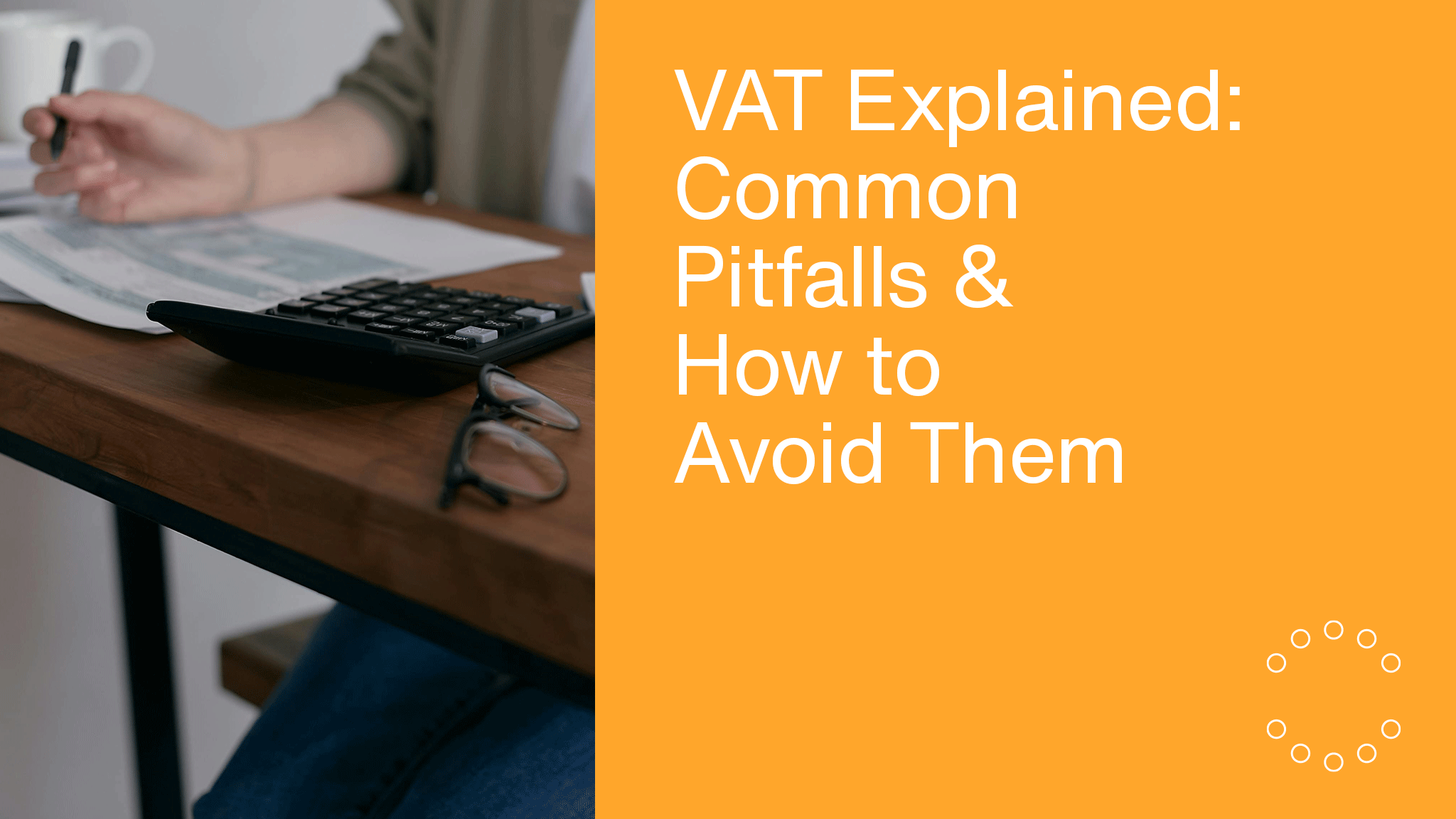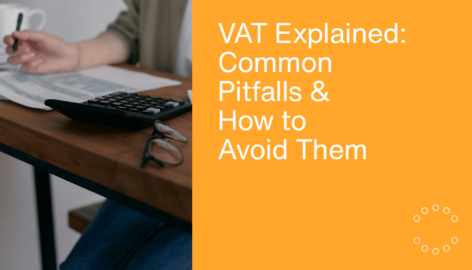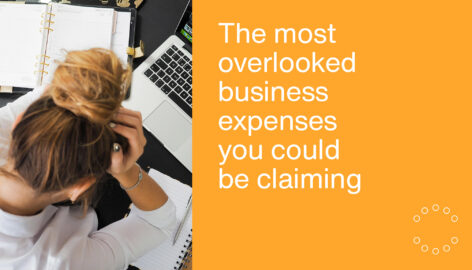Whether you’re a sole trader just approaching the VAT threshold or an established limited company, understanding VAT (Value Added Tax) is vital — and getting it wrong can cost you more than just money.
From registration blunders to reclaiming errors, let’s break down the most common VAT pitfalls and how to steer clear of them.
What Is VAT?
VAT is a tax charged on most goods and services sold in the UK and the EU. If your taxable turnover exceeds £90,000 in a 12-month rolling period (as of 2024), you must register for VAT with HMRC.
Once registered, you’ll need to:
– Charge VAT on taxable sales
– Submit VAT returns (usually quarterly)
– Pay any VAT owed to HMRC
– Reclaim VAT on eligible business purchases
Common VAT Pitfalls (and How to Avoid Them)
Missing the VAT Registration Deadline
Many businesses don’t realise they’ve hit the £90,000 turnover threshold until it’s too late, leading to fines and backdated VAT bills.
How to Avoid It:
– Monitor your rolling 12-month turnover monthly.
– Set up reminders and accounting software alerts.
– Register as soon as you approach the threshold — or voluntarily register if it suits your business.
Incorrect VAT Invoicing
Failing to include required details on invoices or using the wrong VAT rate (standard, reduced, or zero) can result in rejected claims and compliance issues.
How to Avoid It:
– Use invoicing software or templates compliant with VAT regulations.
– Include: your VAT number, invoice date, itemised charges, VAT amount, and correct rates.
– Double-check whether goods/services qualify for reduced or zero rate.
Claiming VAT on Ineligible Expenses
Trying to reclaim VAT on non-business or exempt expenses — such as entertaining clients or buying a car used for personal purposes — can land you in trouble.
How to Avoid It:
– Only claim VAT on expenses directly related to your business.
– Check HMRC’s guidance if in doubt — or ask your accountant.
– Keep clear records and receipts for every claim.
Forgetting to Reverse Charge on Overseas Services
If you buy services from overseas (e.g. software, freelancers), you may need to apply the reverse charge — where you account for the VAT as if you both charged and reclaimed it.
How to Avoid It:
– Understand which services are covered by the reverse charge.
– Ensure your accounting software handles reverse charge correctly.
– Include the correct wording and figures on VAT returns.
Late VAT Returns and Payments
Submitting VAT returns or payments after the deadline can trigger penalties, interest charges, and harm your business’s reputation with HMRC.
How to Avoid It:
– Mark return and payment deadlines in your calendar.
– Use automated reminders or accounting software.
– Submit your return and pay on time — even if you can’t afford the full amount, it’s better to engage with HMRC early.
Not Using Making Tax Digital (MTD) Properly
VAT-registered businesses must use MTD-compatible software to keep digital records and file VAT returns. Failure to comply could lead to penalties.
How to Avoid It:
– Choose MTD-compliant software like Xero, QuickBooks, or FreeAgent.
– Keep digital records of all VAT transactions.
– File returns directly through the software, not via the HMRC portal.
Bonus Tip: Know Your VAT Scheme
There are several VAT schemes available, including:
– Flat Rate Scheme (simplifies VAT calculation, but limits reclaiming VAT on purchases)
– Annual Accounting Scheme (ideal for steady businesses that prefer fewer returns)
– Cash Accounting Scheme (pay VAT only when you receive payments)
Choosing the right scheme can improve cash flow and reduce admin — speak to your accountant to find the best fit.
Final Thoughts
VAT isn’t always straightforward, but getting it wrong can have serious consequences. The good news? With a bit of planning, the right tools, and up-to-date advice, most VAT issues are entirely avoidable.
Key takeaways:
– Track your turnover closely
– Invoice correctly and on time
– Claim only what you’re entitled to
– File and pay returns promptly
– Keep digital records with MTD-compliant software
Still unsure about your VAT obligations? Contact us for a free – no obligation chat.










